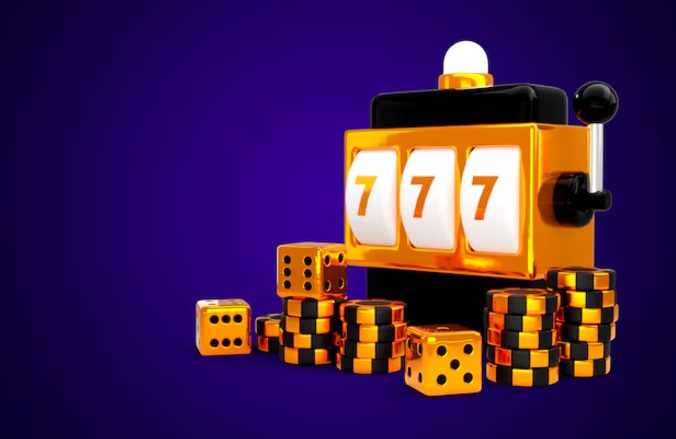Online slots have become a popular source of entertainment for many people worldwide, offering the chance to enjoy games like slots, poker, and blackjack from the comfort of your home. However, before diving into the world of online gambling, it’s important to understand the legal considerations that come with it.
From knowing the laws in your country to ensuring the slot you’re playing at is licensed, there’s more to online gambling than just placing bets.
Understanding Online Gambling Laws
The legal status of online slots can vary greatly depending on where you live. In some countries, online gambling is completely legal, while in others, it may be highly restricted or even outright banned. Online gambling laws are constantly evolving, and what might be legal today could change tomorrow.
For example, in the United States, online gambling is regulated on a state-by-state basis. While states like New Jersey, Pennsylvania, and Michigan have fully legalized online slots, others like Utah and Hawaii have strict laws against gambling in any form. Similarly, in the United Kingdom, online gambling is legal and highly regulated by the UK Gambling Commission, ensuring fair play and the protection of players.
Before signing up for an online slot, it’s essential to check whether online gambling is permitted in your region. Some online slots may even restrict players from certain countries to avoid legal complications.
Finding Licensed and Regulated Online slots
One of the most important legal considerations when playing at online slots is ensuring the site is licensed and regulated by a reputable authority. Licensing is crucial because it guarantees that the slot operates within the boundaries of the law, adheres to fair play standards, and offers protection for players’ personal and financial information.
The most well-known regulatory bodies for online slots include:
- UK Gambling Commission (UKGC)
- Malta Gaming Authority (MGA)
- Gibraltar Regulatory Authority
- Kahnawake Gaming Commission (Canada)
Each of these organizations enforces strict rules that slots must follow. A slot licensed by one of these authorities is usually a safe and legal option. You can typically find the license details at the bottom of the slot’s homepage. If the slot doesn’t display its license or certification, it’s better to stay away and look for another one.
Why Licensing Matters
When an online slot gacor is licensed, it’s required to maintain a high standard of fairness and transparency. Licensed slots are regularly audited to ensure their games are fair and random, meaning there’s no cheating or manipulation. They are also bound to pay out winnings and ensure that they are handling your personal information securely.
Another reason why playing on licensed online slots is crucial is that in the event of a dispute, you have legal recourse. If you play at an unlicensed slot, you have little to no protection if there’s an issue with your account, payouts, or other services.
Age Restrictions and Gambling Addiction
Another important legal consideration when playing online slots is age. Most countries set a minimum age for gambling, and online slots strictly enforce this rule. Typically, the legal gambling age ranges from 18 to 21 years old, depending on your location.
Make sure you meet the age requirements before registering at an online slot. If you’re caught lying about your age or gambling illegally, you could face fines or even be banned from the site at slot777.
It’s also essential to be aware of the potential for gambling addiction. Many countries have strict regulations requiring online slots to provide resources for players struggling with addiction. These resources might include self-exclusion options, links to professional support organizations, and limits on how much you can deposit or wager.
Know the Risks Involved
While online gambling can be fun and exciting, it’s important to approach it with caution. Responsible gambling is a key aspect of legal online play. Always know the risks, set limits for yourself, and never gamble more than you can afford to lose. It’s a good idea to familiarize yourself with the laws around responsible gambling in your country to ensure you’re following them.
Payment Methods and Taxes
Another aspect to consider is how payment methods work in online slots. Some online slots offer various methods for depositing and withdrawing money, such as credit cards, bank transfers, and even cryptocurrencies. Ensure that the slot you choose supports payment methods that are legal in your country and that you are aware of any associated fees.
Additionally, taxation on gambling winnings varies from country to country. In some jurisdictions, gambling winnings are taxable, while in others, they may not be. For example, in the United States, gambling winnings are generally taxable, and players are required to report them to the IRS. Be sure to check the tax laws in your country to avoid any surprises when it comes time to file your taxes.
Conclusion
Understanding the legal considerations of online slots is essential to ensuring a safe and enjoyable gambling experience. Always check the licensing of any slot you play at, verify the gambling laws in your area, and be mindful of age restrictions and responsible gambling practices. By doing so, you’ll be able to make informed decisions and play with confidence, knowing you’re protected by the law.
Whether you’re playing for fun or trying your luck for a big win, remember that responsible gaming and being aware of the legal requirements are key to enjoying your online slot experience in a safe, secure, and enjoyable manner. Happy gaming!
